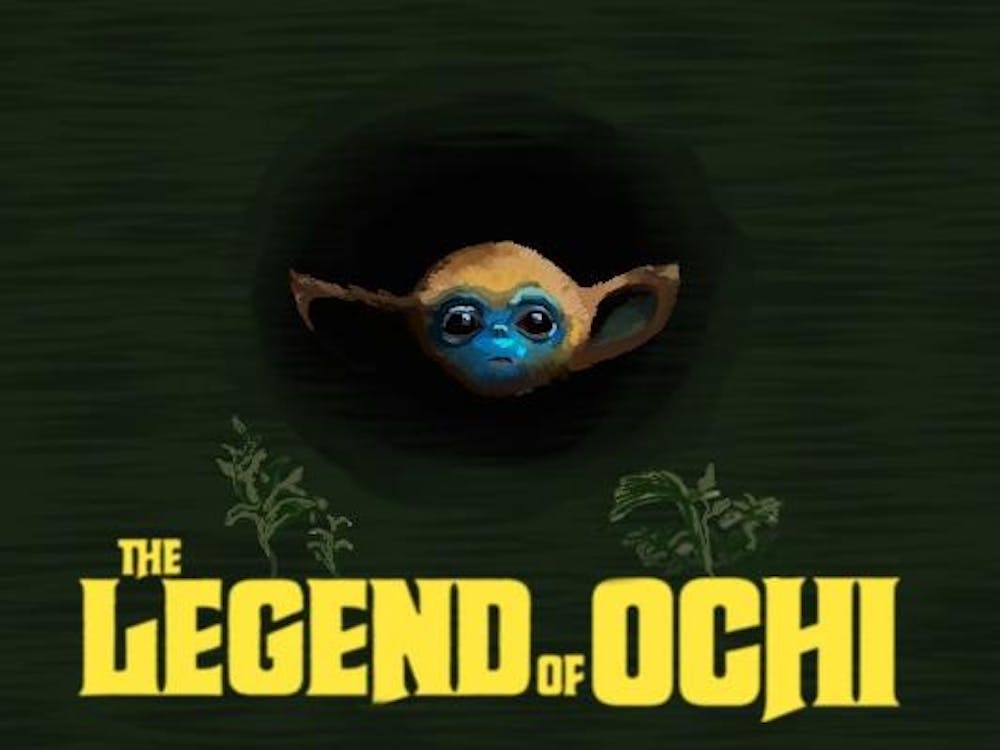Universal Music Group, the world’s largest record label, and TikTok, one of the fastest-growing social media platforms in internet history, could have reigned the virtual realm together — but alas, the two have failed to renew their music licensing deal, resulting in UMG pulling its artist music from the app altogether Feb. 1. Now, TikTok videos that previously featured the music of UMG artists — like Taylor Swift, Drake, Olivia Rodrigo and more — have had these sounds removed, and new videos cannot be made with those artists’ songs.
UMG has released an open letter to the artist and songwriter community explaining their decision, calling the community to join them in criticizing TikTok for low artist compensation rates, the use of exploitative artificial intelligence technology and limited content moderation for user safety.
Despite the company’s claims, Ashleigh Wade, asst. media studies prof., explained that UMG’s refusal to renew their licensing deal with TikTok is less about artists’ rights, and was instead a decision aimed at maximizing the company’s profits.
“I think part of the reason is because TikTok profits more from people engaging on TikTok and creating content on TikTok using these artists’ music than Universal Music Group does with streaming platforms like Spotify and Apple Music,” Wade said.
Wade said that another aspect of UMG’s decision is the potential for UMG artists’ songs to be used in videos that depict bullying and harassment, thus tarnishing UMG’s image by association.
“There’s probably a concern about the potential for [UMG’s] artists to be connected to material that’s harmful because there’s no regulation of that kind of content,” Wade said. “Now the question is, is it a genuine concern or is it a concern over getting sued?”
TikTok has articulated its own response to UMG’s open letter, baring their teeth at the major music conglomerate and condemning UMG for putting their desire for profit above their artists’ needs.
“Despite Universal’s false narrative and rhetoric, the fact is they have chosen to walk away from the powerful support of a platform with well over a billion users that serves as a free promotional and discovery vehicle for their talent,” TikTok said in the aforementioned statement.
According to Kevin Driscoll, asst. media studies prof., the removal of UMG artists’ songs from TikTok videos is “not unprecedented” but rather another example of the friction between major music industry stakeholders and technology firms over the past 25 years.
The passage of the Digital Millennium Copyright Act in 1998, instilled a system in which users can report content on other sites that they believe violates their copyright, resulting in the content being removed and investigated. However, such a system is “very easy to abuse,” especially with the recently implemented AI-based automated systems of investigation, according to Driscoll.
He explained that the DMCA encouraged a new kind of censorship — the kind that can be credited with causing the current “PR battle of who’s to blame” between TikTok and UMG for the withdrawing of music from the app. DMCA has enabled UMG to cease TikTok content that uses their artists’ music, stifling creativity in the name of the law.
Graduate Arts & Sciences student Jed Baul explained some of the ways artists and fans have resisted copyright on TikTok, such as UMG artist bbno$ remixing his own songs and uploading them to TikTok in order to bypass the new copyright guidelines. Other users on the app have followed suit, remixing UMG artists’ songs to use in their own videos.
Similarly, Baul compared TikTok’s copyright conundrum to that of another platform, Twitch, which features live streamed video game play. Twitch streamers often include background music in their livestreams and had “free reign” in terms of what songs could be incorporated, but in May 2020, Twitch began sending DMCA takedown notices to streamers who used copyrighted music in their videos.
Nevertheless, streamers have persisted in playing music in their videos. As Baul has discovered in researching for his thesis on this Twitch phenomenon, streamers have been playing songs that are copyright-free or otherwise up for fair use. Baul said that one streamer, Masayoshi, even has a Spotify playlist titled “avoiding DMCA” filled with songs that fly under Twitch’s radar.
According to Driscoll, the resilience that both artists and TikTok’s users have shown in light of the removal of UMG music from the app is an indication of TikTok’s longevity as a social media platform. Driscoll acknowledges that UMG’s status as a major conglomerate could cause this event to leave a dent in social media history, but he believes users will work around the issue due to TikTok’s “presentist” structure that relies on the rapid and persistent rise of new trends rather than highlighting old memories on a timeline like Facebook or other social media platforms.
“[TikTok is] like dipping your foot into the river, and the water is going by, and it’s just like, ‘oh, this is what’s passing now,’” Driscoll said. “In Facebook, there is more of an attention to memories … but with TikTok, the moment passes and we stop talking about it.”
Will TikTok’s “in-the-now” system be artists’ downfall, as users forget UMG artists’ music being pulled from the app? As the river that is TikTok continues to flow, only time can tell the fate of these major corporations and the communities of artists and users in their hands.







